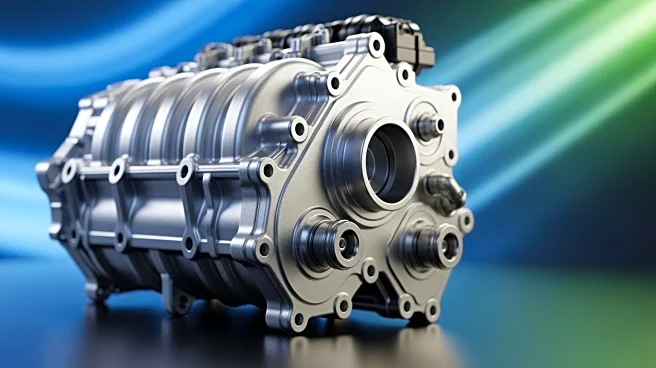Rapid Read • 7 min read
President Trump has announced a $9 billion investment in Intel, acquiring a 9.9 percent equity stake in the company. This investment is part of a federal funding act, aimed at supporting Intel's contract-chipmaking business. However, analysts suggest that the funding may not be sufficient for Intel to thrive, as the company faces challenges in securing external customers for its advanced manufacturing processes. Intel's CEO, Lip Bu Tan, has warned that the company may need to exit the chip contracting business if it fails to attract major clients. The investment follows Intel's struggles in maintaining its manufacturing lead and competing in the artificial intelligence chip market.
AD
The investment by President Trump highlights the government's commitment to bolstering domestic production and supporting key industries. Intel's challenges in the chipmaking sector underscore the competitive pressures faced by U.S. companies in the global market. The funding aims to revitalize Intel's operations and enhance its capabilities, but the company's future success depends on its ability to secure customers and improve manufacturing processes. The government's involvement in corporate affairs reflects broader economic and strategic interests in maintaining technological leadership.
Intel's ability to attract customers and improve its manufacturing processes will be crucial for its long-term viability. The company's efforts to expand its U.S. factories and begin high-volume chip production are key steps in addressing its challenges. Stakeholders, including investors and government agencies, will be closely monitoring Intel's progress and the impact of the investment on its operations and market position.
The government's stake in Intel raises questions about potential governance implications and the company's ability to act in the best interest of shareholders. The investment reflects broader economic strategies to support domestic industries and maintain technological competitiveness.
AD
More Stories You Might Enjoy











